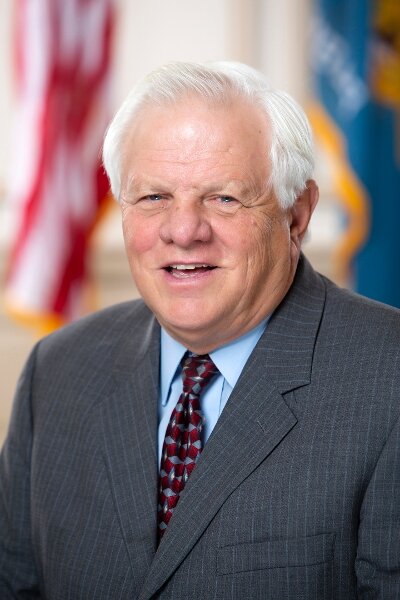Delaware's voting measures deemed unconstitutional
Superior Court nullifies early and absentee balloting
The state’s permanent absentee and early-voting laws have been declared unconstitutional, according to a ruling by Delaware’s Superior Court on Friday.

You must be a member to read this story.
Join our family of readers for as little as $5 per month and support local, unbiased journalism.
Already a member? Log in to continue. Otherwise, follow the link below to join.
Please log in to continue |
Delaware's voting measures deemed unconstitutional
Superior Court nullifies early and absentee balloting
DOVER — The state’s permanent absentee and early-voting laws have been declared unconstitutional, according to a ruling by Delaware’s Superior Court on Friday.
Before the decision, state election commissioner Anthony Albence and the Department of Elections had made a request to the court to dismiss a complaint filed by plaintiffs Michael Mennella and Senate Minority Leader Gerald Hocker, R-Ocean View, challenging the constitutional validity of these policies for general elections.
But the court went forward, and Judge Mark Conner wrote, “This decision is not made lightly, and it should be noted that the spirit and goals of the challenged legislation are not what are being ruled on today. Nothing in this opinion and order should read to suggest that policies intended to support the enfranchisement and inclusion of voters in Delaware are per se unconstitutional.
“The enactments of the General Assembly challenged today are inconsistent with our constitution and therefore cannot stand.”
Early voting was passed by the General Assembly in 2019 and enacted into law with Gov. John Carney’s signature that June.
Absentee ballot voting was approved for the 2020 election season in light of the pandemic, but after Democrats introduced a proposal to allow universal voting-by-mail — which became law in July 2022 — it was struck down by Delaware’s Court of Chancery two months later.
In Friday’s ruling, Judge Conner described several reasons why both measures are unconstitutional.
This includes the fact that the Delaware Constitution only provides one day for general elections, “not any day or series of days the General Assembly sees fit.”
The judge also wrote that the early-voting policy went beyond the General Assembly’s constitutional authority and that absentee laws contradict the state constitution in the same manner because such policies are provided for individuals “who shall be unable to appear to cast his or her ballot at any general election” and are not indefinite.
Lawmakers have been reacting to the court’s decision since Friday, with Senate Democratic leadership pushing against Republicans’ efforts to block significant voting reform measures.
“Despite Democrats’ ongoing efforts to modernize Delaware’s elections and give voters more flexibility, Republicans have blocked Delawareans from their rights to no-excuse absentee voting, vote-by-mail, same-day registration, and now, early voting and permanent absentee voting,” read a statement by Senate President Pro Tempore Dave Sokola, D-Newark; Senate Majority Leader Bryan Townsend, D-Newark; and Senate Majority Whip Elizabeth “Tizzy” Lockman, D-Wilmington.
“Friday’s Superior Court ruling marks a significant blow to thousands of Delawareans who require predictable, hassle-free access to absentee voting. At the same time, we are heartened that the Judge, in his opinion, made clear that the spirit of our voting reform efforts was never in judgment.”
The three also took specific aim at former Delaware Republican Party chair Jane Brady and Sen. Hocker for respectively serving as the attorney and plaintiff in the case but also at House Minority Leader Mike Ramone, R-Newark, and Rep. Mike Smith, R-Pike Creek, for switching their votes on the second leg of a constitutional amendment to modernize Delaware voting laws in 2020.
Plus, Senate leadership noted that the Republican House members represent majority Democratic districts and that their decision to change such votes came after former President Donald Trump began conspiracies regarding a stolen election.
The Mennella/Hocker lawsuit was transferred to Delaware Superior Court last fall after originally being filed in the Court of Chancery.
Additionally, Friday’s ruling will only apply to general elections, as Ms. Brady noted that the state constitution only addresses such votes and not special or primary elections.
For their part, House and Senate Republican leaders have stated that the action was not a result of opposition to early or absentee voting in general elections but because of its “unconstitutional nature.”
“To be clear, we take no issue with in-person early voting. It is a convenience that many Delawareans have embraced and has been accepted by voters nationwide. In 2022, about 28% of all Delaware voters cast their ballot prior to Election Day. Until Friday’s ruling, Delaware was one of 46 states that offered early in-person voting,” read a joint statement by Sen. Hocker; Rep. Ramone; Senate Minority Whip Brian Pettyjohn, R-Georgetown; and House Minority Whip Lyndon Yearick, R-Magnolia.
“Our main objection to the statute was that it violated the state constitution. We applaud the court for validating the arguments we made five years ago.”
The leaders also noted that, on Thursday, a batch of prefiled legislation will be released in the General Assembly. One of them — led by Sen. Hocker — will be a constitutional amendment to implement the early voting used during the previous election cycle.


 By
By 



